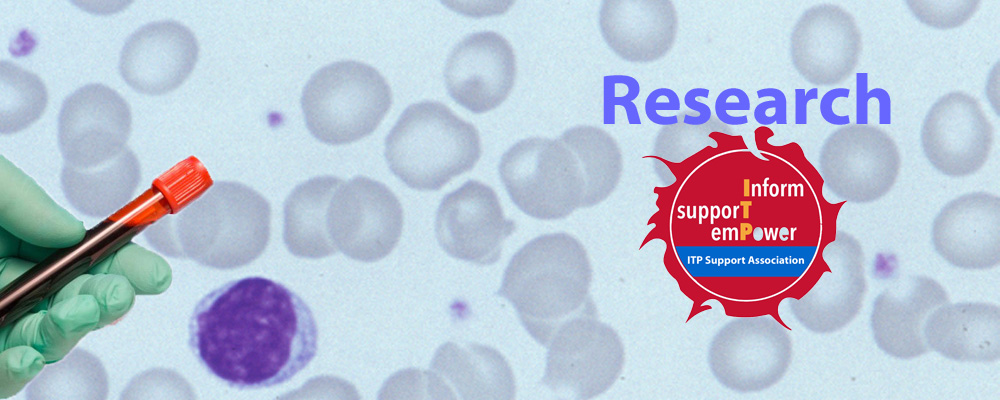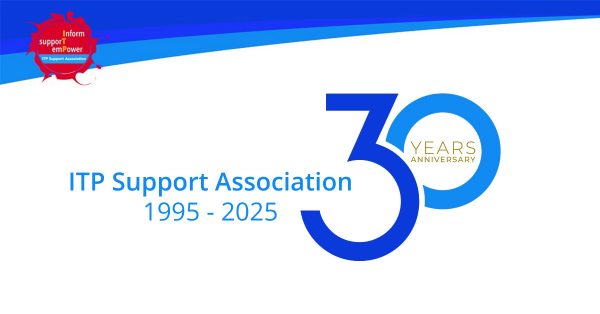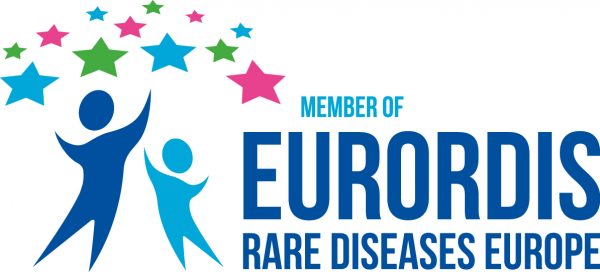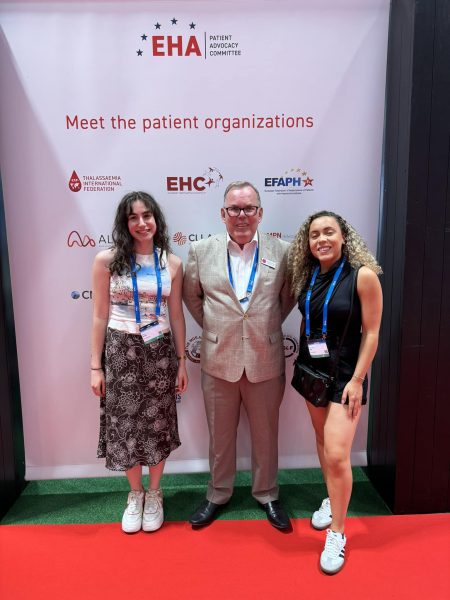No products in the cart.

Research and the ITP Support Association
Research and the ITP Support Association
The Association is a registered charity whose aims are to promote and improve the general welfare of patients and their families with Immune Thrombocytopenia. It does this in a number of ways, by providing written information, support through the website, access to experts, mentors and other patients, and through the Conventions and small group meetings which allow patients to meet others with similar problems to discuss and share their issues.
The Association also has an important role highlighting the disease regionally, nationally and internationally through links with Societies and specialist groups, by organising medical seminars and by communicating with the regulators, commissioners and various NHS bodies. We have also been active in linking in with other patient groups and have strong links with the PDSA in the States and with a number of the European groups. through the latter we have been pushing recognition of ITP, as a bleeding disorder, on a wider scale through our links with the EHA.
With these initiatives we also hope to encourage the development of research into ITP and have been particularly successful in our links with pharma in supporting clinical trials. The Association is also keen to directly fund research projects but as a small organisation needs to use its resources wisely and not compete in areas where funding is available from other sources. We have achieved this in two ways; by supporting individual research projects and by funding the Adult and Paediatric Registries.
The Registries have been particularly successful and have proved real value for money. Studies through the Paediatric group have led to both romiplostim and eltrombopag being made available to children with ITP. The Adult Registry showed the increased incidence of thrombosis in ITP, identified the degree of fatigue patients suffered and demonstrated the long term sustained response following cessation of the thrombopoietins in adults. More recently they have presented data on the use of rituximab in over 300 patients using either low or high dose treatment. Their data on spleen scanning and platelet survival in predicting response is now well established and they will be presenting data on both the numbers and results of splenectomy over the last 3 decades shortly. Together the Registries have received support of up to £40,000 per year.
With regard individual project support the Association has provided funding of more than £250,000 over the last few years. All projects have been carefully scrutinised and although not all are successful that is the nature of research. Of particular note the study on food, allergy and ITP conducted at Addenbrookes showed no association, which is an important finding. This demonstrated that while there may be occasional (although rare) reactions diet is not a major issue. We also supported a 1-year pilot study on ITP in pregnancy carried out by Dr Angharad Care based in Liverpool at a cost of £16,000. She published the data and also reported it in the ‘Platelet’ in June 2017. This confirmed the increased risk of severe post-delivery haemorrhage and the importance of specialist care. From these findings we have decided to support a Pregnancy in ITP Registry at a similar annual cost. A final important study worth highlighting is one looking at microbleeds into the brain in patients with persistently low platelet counts. These are bleeds that do not cause any clinical problems but may lead to longer term disability. This was developed by Dr Nikki Cooper at Imperial College. Funding for this was £20,000 for the pilot study and she is now seeking funding for a much larger study with the support of the Association. This was presented by Nikki at one of the patient days that we hold and was also published in the ‘Platelet’ in September 2018.
We are looking to support pilot studies at around £20,000 per project. This will not commit us to longer term expenditure and will allow us to be aware of our commitments. We hope that by supporting the provision of early results from these studies applications to larger grant giving bodies will be facilitated.
The Association has always been grateful to its members for their enthusiastic and imaginative fund raising and from the extraordinary generosity of all concerned. We are determined that the money should be used carefully and focussed on the support and care of patients with ITP, fulfilling the broader aims of our charter.
The ITP Support Association is now also proud to announce that it is a NIHR (National Institute for Health and Care Research) Non-Commercial partner.
Professor Adrian Newland CBE
Chair of Trustees
The ITP Support Association
To apply for a Research Grant please read the Grant Application Guidance Notes, which explains the process before completion of the application form



